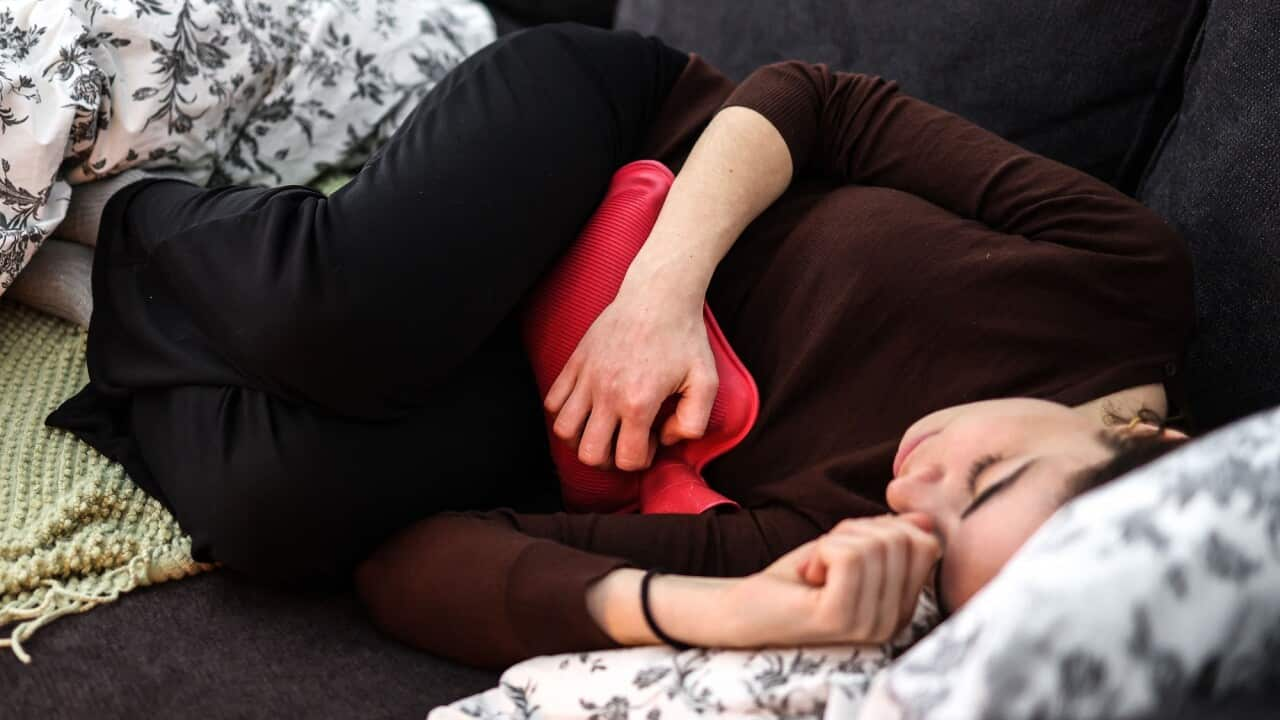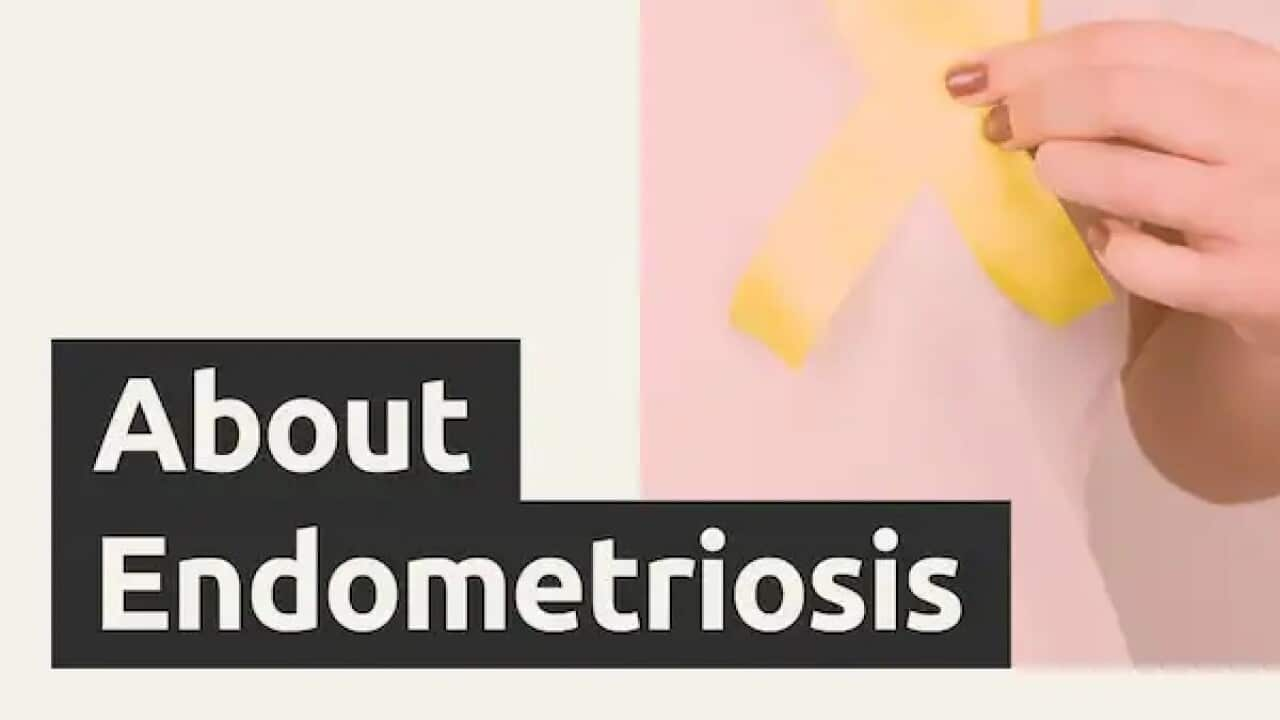Key Points
- Twenty new endometriosis clinics are being rolled out across Australia.
- The clinics are part of a federal election pledge.
- It's hoped the new clinics will reduce the time taken for Australians to get proper diagnosis and care.
Patients can now book an appointment at one of 20 new endometriosis clinics being rolled out across the country in every state and territory.
The specialist clinics will operate within existing GP practices, with $700,000 provided to each clinic over four years. The federal government funding will cover the hiring of specialised staff and equipment, while also being a resource hub. It is hoped the new clinics will reduce the time it takes to get an accurate diagnosis and care.
About one in 9 Australian, or one million, women, girls and those assigned female at birth are living with endometriosis, a condition in which cells similar to those that line the uterus grow in other areas of the body, mainly in the pelvis and reproductive organs. The condition brings persistent pelvic pain that can include irregular bleeding, bowel pain and possible infertility.
A 2019 Ernst & Young evaluation calculated the estimated annual cost to the economy to be $7.4 billion through reduced quality of life and reduced productivity in the workplace.
Jean Hailes Women's Health, a non-profit providing women's health services, said the recognition of the need to provide healthcare in this space is important to reducing the stigma that still exists - and improving access to care across the country.
"It really does increase the focus on these issues that have been or ignored for way too long," said the organisation's executive director, Sarah White.
"We hear from women all the time at Jean Hailes who talk about how their pain is dismissed. We also talked to women who don't realise that periods shouldn't be painful.
"Women are really suffering and they're not being heard. And some of that is because the medical workforce, particularly in primary care, just doesn't know where to start for diagnosis, and to help start providing the treatment the woman needs."
Women waiting more than six years for endometriosis diagnosis
The chairperson of Endometriosis Australia, Maree Davenport, said it's taking too long for patients to receive proper care and support.
"It takes on average six-and-a-half years for a sufferer to be properly diagnosed," she told SBS News. "Unfortunately, despite endometriosis being as common as diabetes, we have limited capacity to treat it or certainly cure it."
There is believed to be a large number of undiagnosed Australians because the diagnosis often needs to be confirmed through surgery, although non-invasive techniques such as ultrasound can provide a working diagnosis.
Ms Davenport, a former Victorian Liberal MP, said women with endometriosis navigating the health system often have their symptoms dismissed.
"These specialists clinics are really fundamental to ensuring that more girls, women and gender diverse people in Australia can access that easy diagnosis - rather than going from doctor to doctor and emergency departments here and there.
"They're often dismissed as having just a heavy period, or maybe having appendicitis or maybe it's a bowel issue."
She said seeing her daughter, who works as a nurse, struggle to get the right help for endometriosis was tough.
"It affects women all the way through their lives, right even after menopause... Many need surgery to continue to manage the disease. For example, my daughter's had about 11 operations, and she's only 25. And when she has been pregnant and then had our grandson who's about six months old now, both of them ended up in in intensive care as complications with the endometriosis and adenomyosis became an issue."
Stigma surrounding endometriosis a barrier to getting help
Conservationist Bindi Irwin on International Women's Day earlier this month. The 24-year-old daughter of the late "Crocodile Hunter" Steve Irwin said she endured "insurmountable fatigue, pain and nausea" for a decade. In an Instagram post, she posted a photo of herself in hospital after having surgery to alleviate the pain.
Ms Davenport said there is still stigma surrounding endometriosis in society today which means many women are suffering in silence.
"In going to these clinics, maybe for pelvic pain, they're also accessing the healthcare system in specialised women's health. And that's crucial to identifying other diseases, like, you know, ovarian cancer, cervical cancer and breast cancer," she said.
"It's important that it's not just seen as sexual health issue, that it's actually seen as women's health issue.
"This is also very crucial for women from culturally diverse communities. Residents who were born overseas, or their parents, would find endometriosis is a taboo subject. There are social and religious customs that restrict or forbid discussion about menstruation, and menstrual disorder... and women can be deterred from seeking any help or treatment."
Both the Coalition and Labor had pledged funding for new endometriosis and pelvic pain clinics at the 2022 federal election.
The federal assistant minister for health, Ged Kearney, said the government has increased the commitment of new clinics from 16 to 20 in recognition of the impacts of the condition on families.
"The recognition of endometriosis and pelvic pain as serious conditions has been a long and hard-fought battle from fierce advocates in the sector and in our communities. I want to say to those people – thank you and we're listening," she said.
"We are a government that is committed to improving women’s health and this is a crucial step forward for part of the population that has too long been dismissed."
$16.4 million for the new clinics was allocated in the 2022-23 federal budget.
The 20 clinics include:
Orange Family Medical Centre (Orange, NSW)
Hunters Hill Medical Practice (Hunters Hill, NSW)
Leichhardt General Practice (Leichhardt, NSW)
The Women’s Health Centre Southern Highlands (Mittagong, NSW)
Milton Medical Centre (Milton, NSW)
Coffs Harbour Women’s Health Centre (Coffs Harbour, NSW)
EACH Practice (Ringwood East, VIC)
Bendigo Community Health Services (Bendigo, VIC)
Kardinia Health (Belmont, VIC)
Lyndoch Medical Hub (Warrnambool, VIC)
MATSICHS (Institute for Urban Indigenous Health Ltd) (Morayfield, QLD)
Benowa Super Clinic (Benowa, QLD)
Family Planning Queensland (Cairns, QLD)
Neighbourhood Medical (Bardon, QLD)
Pioneer Health Albany (Albany, WA)
The Garden Family Medical Clinic (Murdoch, WA)
Kadina Medical Associates (Kadina, SA)
Family Planning Tasmania (Glenorchy, TAS)
Sexual Health and Family Planning ACT (SHFPACT) (Canberra, ACT)
Northside Health Darwin (Coconut Grove, NT)













